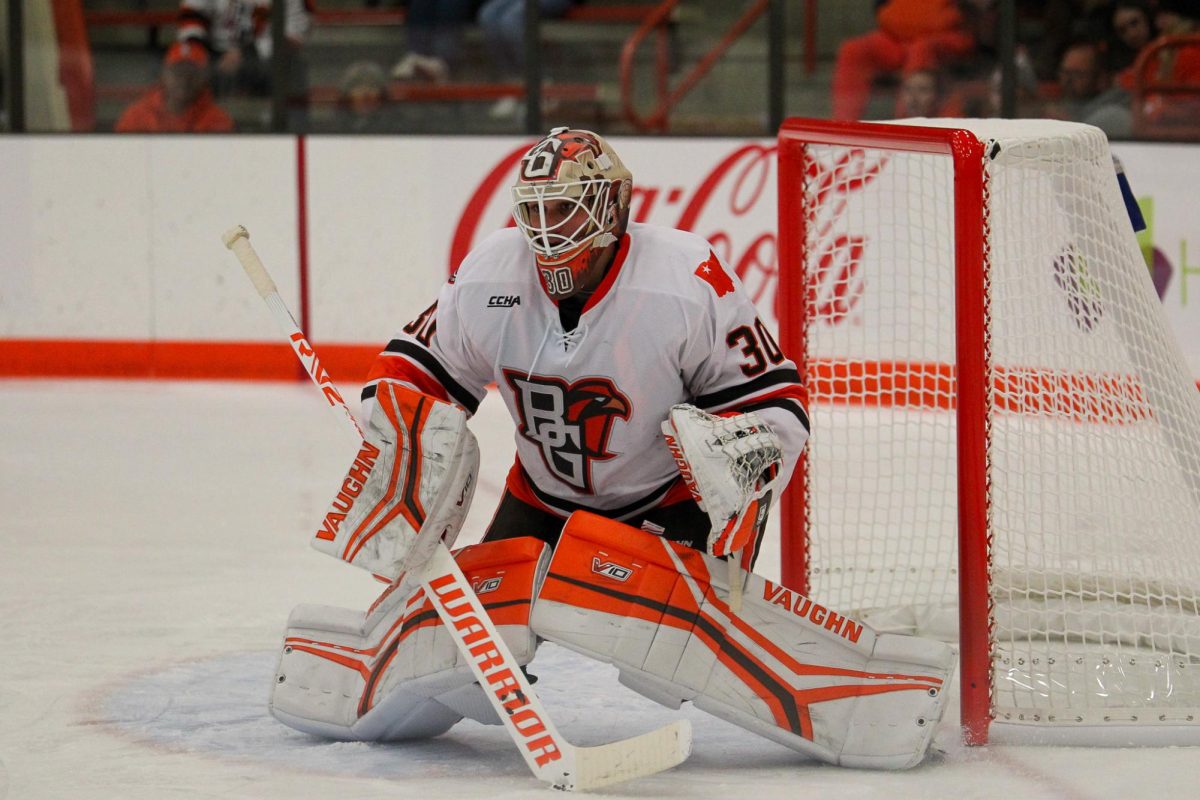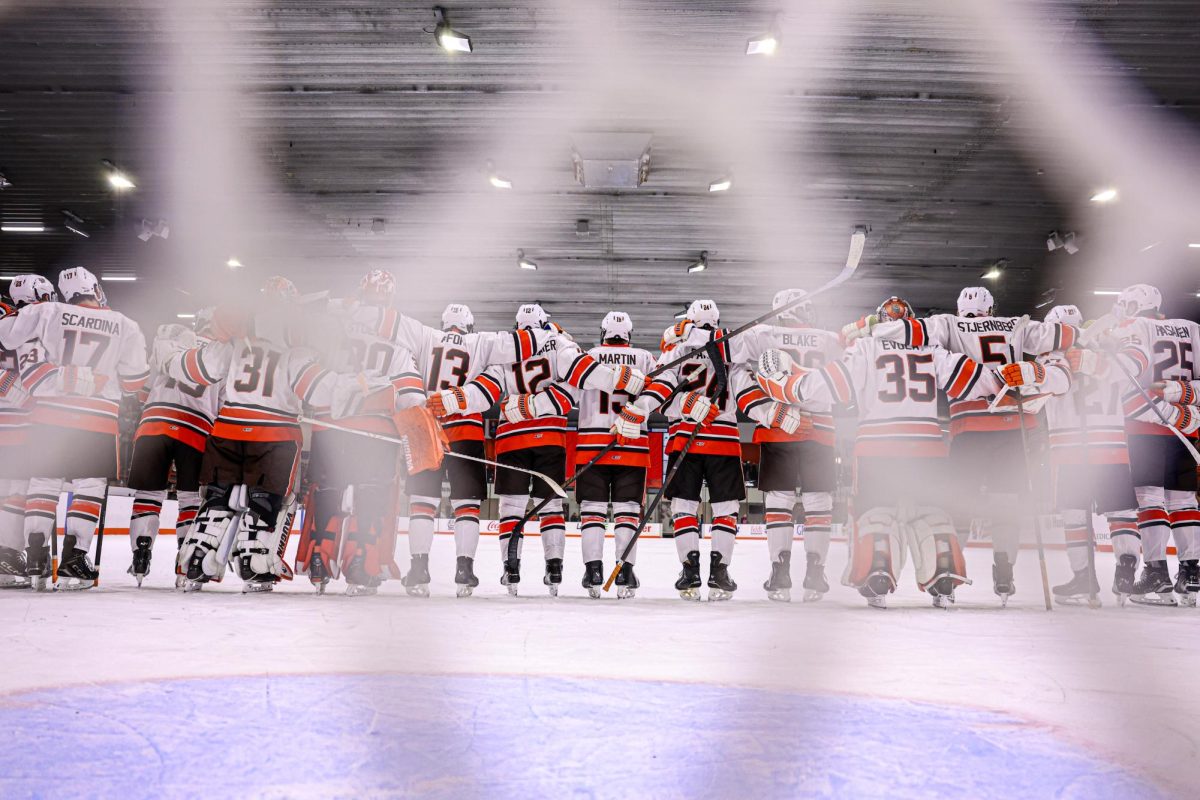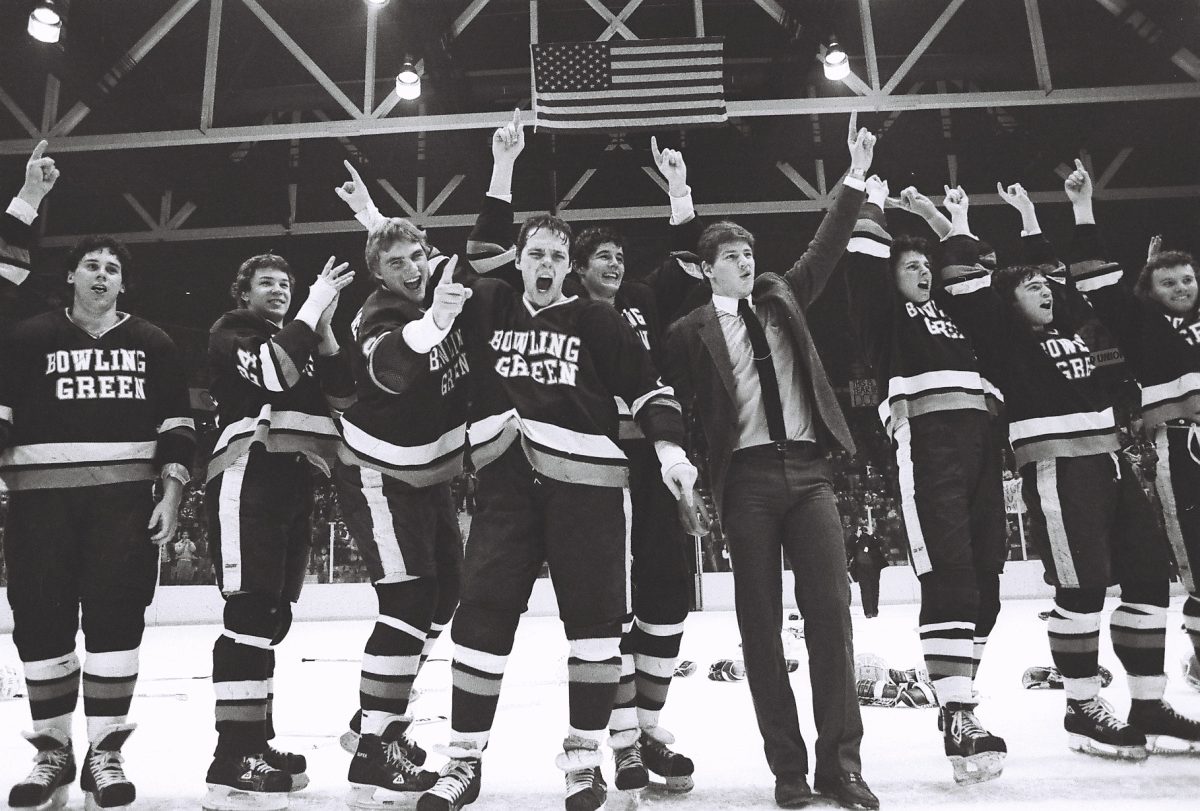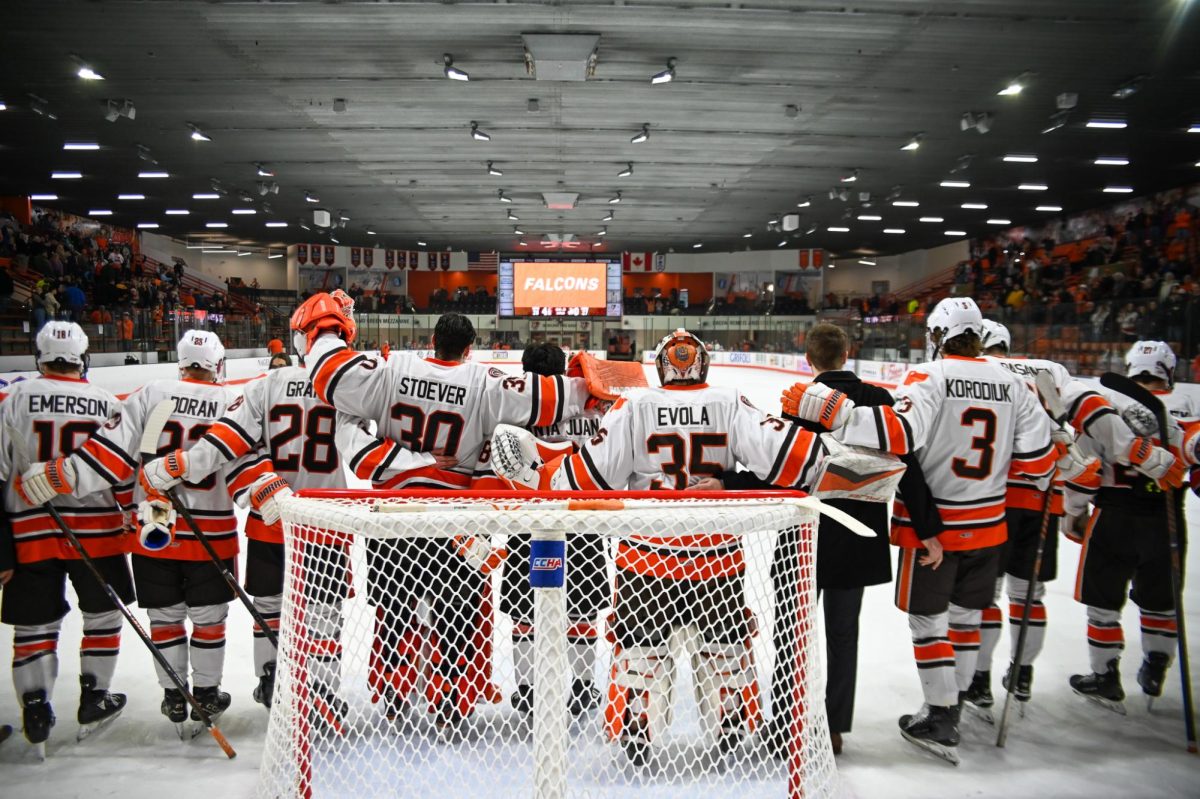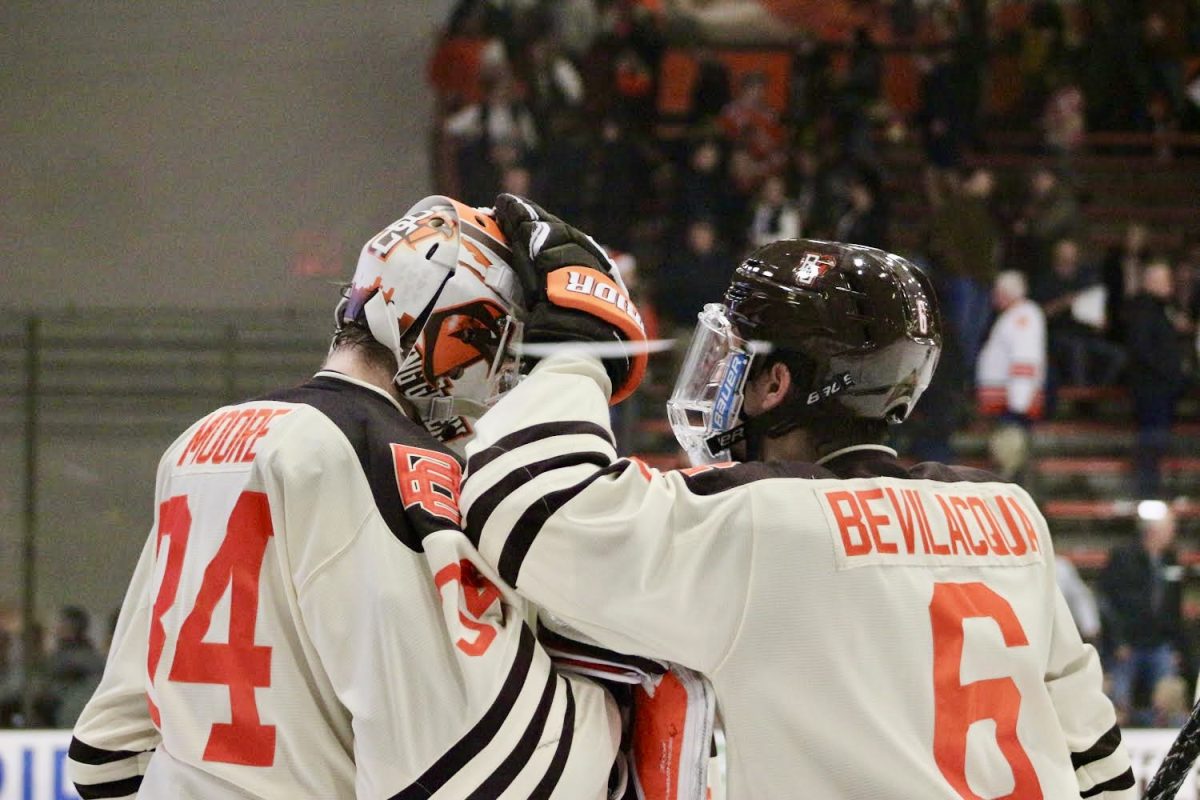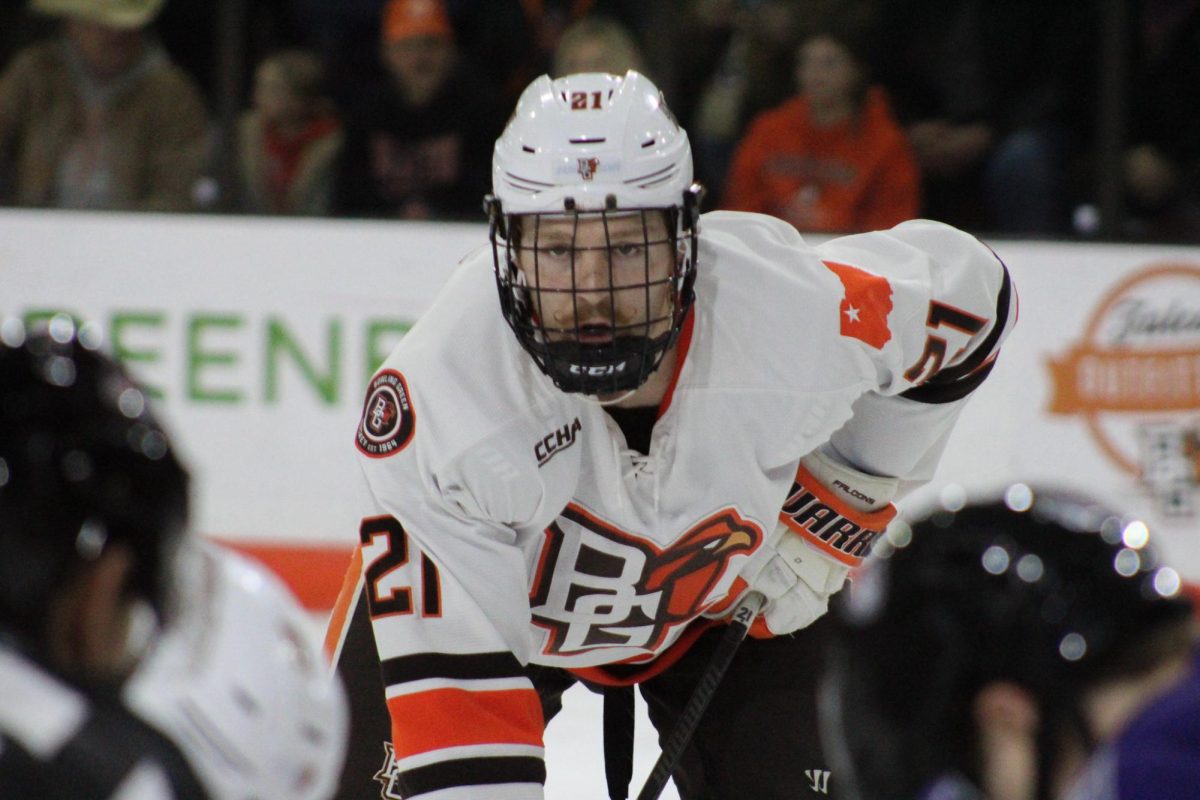Four years ago, the future of Division I hockey at the University was in serious doubt.
Now, with a new conference and a roster full of upperclassmen, things are looking optimistic for the team that calls the BGSU Ice Arena home.
The Falcons had just finished the 2008-09 season with a disappointing 12-24-3. It had been years since the Falcons posted a winning record, and the ice arena was in dire need of renovations. The University’s administration was contemplating cutting the program to save money.
However, community and University support won out. The University started the “Bring Back the Glory” campaign, pledging to raise money for the hockey program. The University and state of Ohio immediately pledged a combined $4 million toward renovating the BGSU Ice Arena.
That commitment to the program showed the current coaching staff — hired following the 2009-10 season — that the University was serious about ensuring the future success of the hockey team.
“The two things they told me that were most important to me was that one, hockey was staying long term,” said coach Chris Bergeron. “And two, both [then-University President] Dr. [Carol] Cartwright and [then-Athletic Director] Greg Christopher felt like it was a really exciting time for someone to come in and do something special with this program.”
Bergeron filled his assistant coaching positions with familiar faces: Barry Schutte, a former assistant and director of Goggin Ice Arena at Miami University, and Ty Eigner, a 1993 BG graduate who was roommates with Bergeron when they played minor league hockey in Birmingham, Ala.
As a University alumnus, Eigner said discovering the potential demise of the program came as a shock.
“Like a lot of alums, being back in Minnesota with a wife and kids, I wasn’t as connected to the program as maybe I should have been,” he said. “But it was really eye-opening and alarming that something we took great pride in was potentially going to go away.”
However, despite the positive energy the staff brought, they faced the uphill battle of turning the program around.
In 2009-10, the season before the current staff arrived on campus, the Falcons went 5-25-6. Six of the team’s top eight scorers from that season graduated. The new staff inherited a young roster that didn’t have much college experience.
Of those that did, they had not experienced winning.
“It came down to ultimately increasing expectations, trying to hold everybody to a high standard,” Schutte said. “We just had to demand more from the program and individuals. I think the biggest challenge was just assessing where we were as a program.”
There were small, but noticeable improvements in Bergeron’s first season as coach. The Falcons improved to 10 wins, which included a Central Collegiate Hockey Association playoff series victory against Northern Michigan.
It was the first time in CCHA history that the No. 11 seed won a first-round playoff series.
“We had to change expectations, and that doesn’t happen overnight,” Bergeron said. “We’re trying to build our program based on relationships and trust, and that doesn’t happen overnight either. That was something that takes time.”
Despite again finishing last in the CCHA’s regular season standings the following season, the Falcons broke out in the playoffs. They once again took out Northern Michigan and upset top-seeded Ferris State, before losing to Michigan in the CCHA semifinals.
Then this past season, for the first time in Bergeron’s tenure at the University, the Falcons did not finish the regular season in the CCHA basement.
The team isn’t the only one making changes for years to come. This past season was the last for the CCHA as the Falcons will move to the Western Collegiate Hockey Association, made up of old foes like Ferris State and Lake Superior alongside a host of new competition.
The challenge for the Falcons will be to continue to raise their level of competition to be successful against their new foes.
“The culture that we’re trying to put in place is taking a life of its own,” Schutte said. “We feel like this next year will be the first year where we’ve had the proper depth and competition at every position.”
Getting to those details might be easier now than it was three years ago. Heading into the 2013-14 season, the team finally has a roster that boasts more juniors and seniors than freshmen and sophomores.
“We’ve got upperclassmen in our program now who understand what kind of commitment it takes,” Eigner said. “We want to be led by older kids who have experienced the ups-and-downs of college hockey, and the younger kids can go along and say, ‘Hey, I want to be like that guy.’”
With the move to the new conference, the Falcons are prepared to take on a new set of challenges and opportunities.
“The biggest challenge is going to be the [increased] travel,” Bergeron said. “But a lot of it is unknown, and that’s going to be a challenge in and of itself.”


